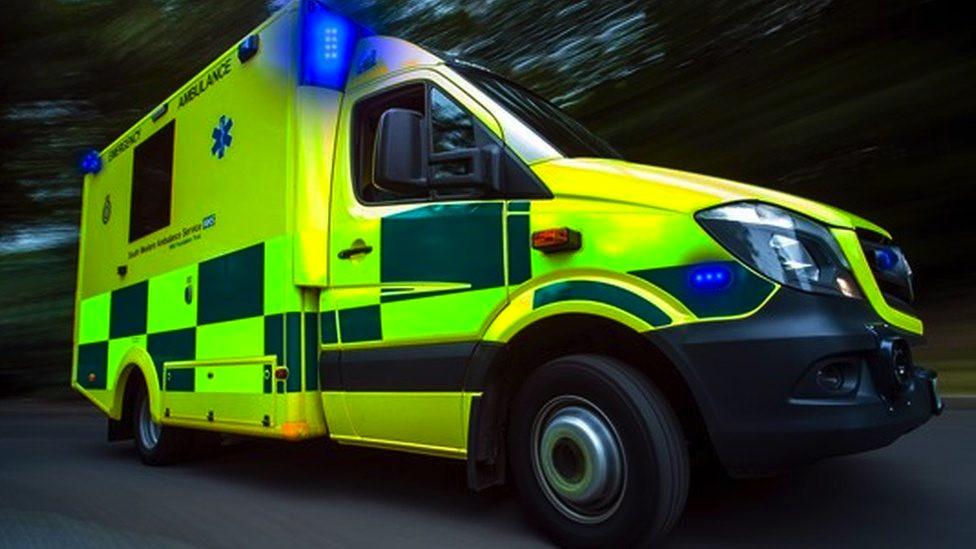Falmouth bus driver diverted to hospital due to ambulance delay
- Published
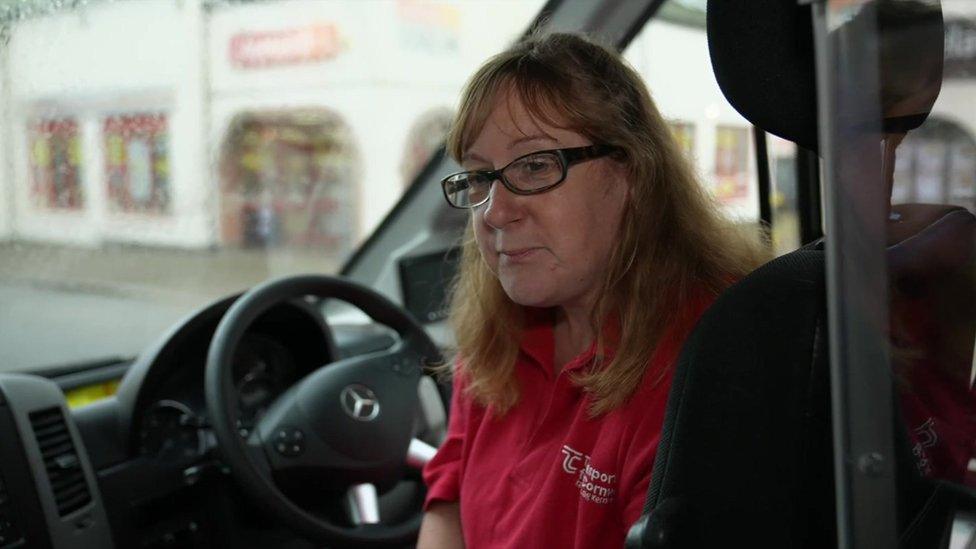
Tamsin Fowles rerouted her bus to help an injured woman when the ambulance service said it could take hours to arrive
A bus driver diverted her vehicle to take an injured woman to hospital after the ambulance service said it could take hours to arrive.
The elderly woman fell and hit her head while trying to board the bus in Falmouth on Monday.
Driver Tamsin Fowles took the decision to reroute the service and take her to hospital herself.
The South Western Ambulance Service said it was experiencing "the highest-ever level of sustained demand".
Passengers 'really good'
The woman tripped getting on the town loop service run by bus operator OTS, outside the town's library.
After phoning 999, an operator said it could take three to four hours for an ambulance to arrive, but Ms Fowles was not willing to let her wait and brought her to Falmouth Hospital.
She said: "The lady said there was nothing they could do about it, unfortunately; so I said: 'Forget it. I'll take her up there myself.'"
The other passengers were asked to leave the bus and a replacement service was organised.
"The passengers were really, really good, especially because I had eight or nine people on, and they were all good as gold. No-one could offer enough help, it was nice to see," Ms Fowles said.
She added that she believed the injured woman was "doing well".
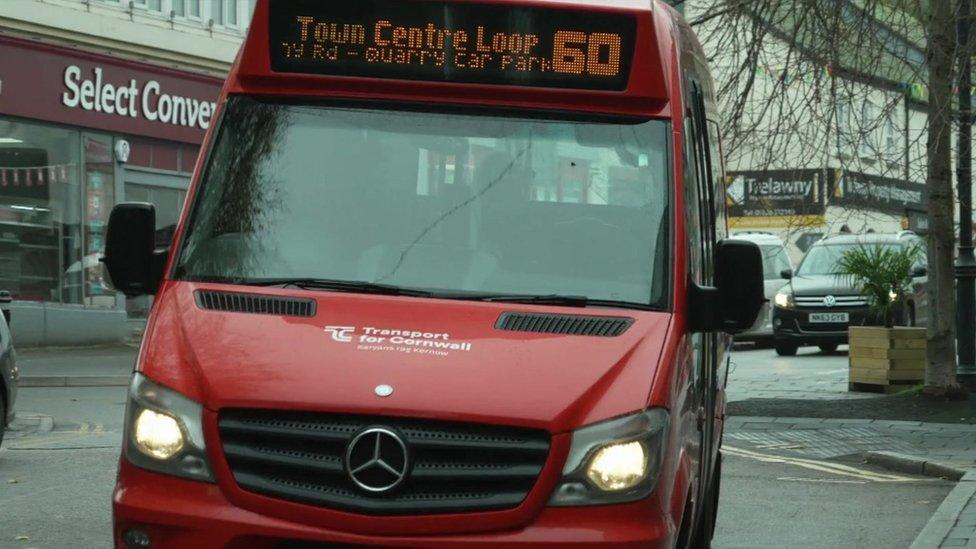
Bus operator OTS said it was proud of its driver
OTS said it was extremely proud of Ms Fowles actions.
South Western Ambulance Service recently told Cornwall Council it was facing "intolerable" delays transferring patients to hospitals due to a lack of bed space.
In the same report, the ambulance service said it had seen an increase in demand over the last few months.
It recorded the longest response times for life-threatening and emergency incidents across England in September and October.
A spokesperson from South Western Ambulance Service NHS Foundation Trust said: "We continue to experience the highest-ever level of sustained demand on our service.
"Our response times are directly affected by the time it takes us to handover patients into busy hospital emergency departments, which is longer than we have ever seen before.
"We are losing many more hours compared with recent years, which causes our ambulances to queue outside hospitals and unable to respond to other patients, and has an inevitable impact on the service we can provide."
The trust said it prioritised patients who were most seriously injured or ill, and added it was working with partners to reduce the delays.

Follow BBC News South West on Twitter, external, Facebook, external and Instagram, external. Send your story ideas to spotlight@bbc.co.uk, external.
Related topics
- Published11 November 2021
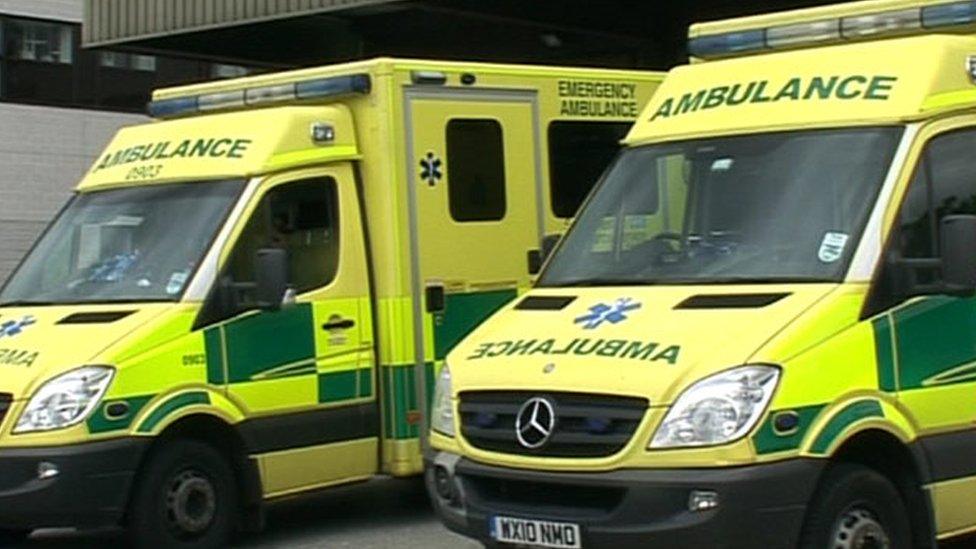
- Published30 May 2021
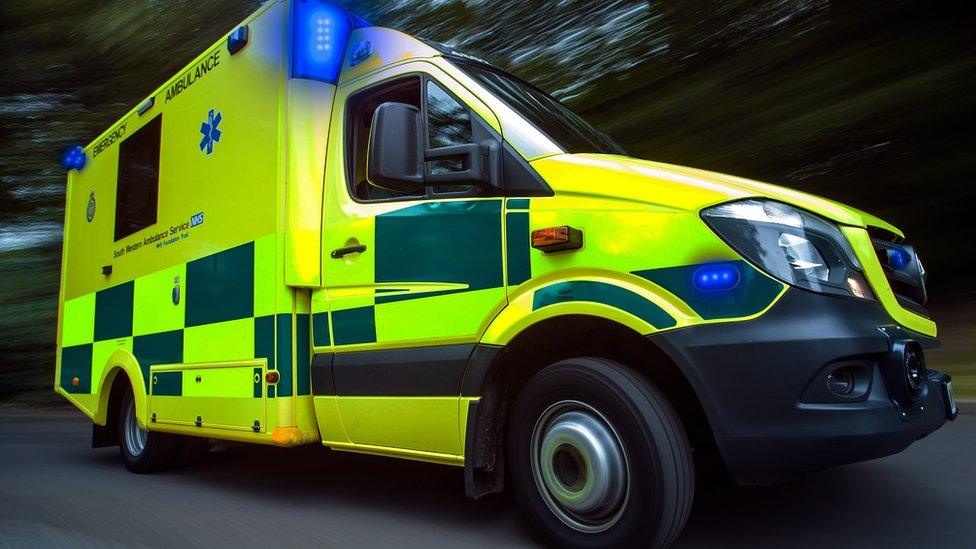
- Published21 October 2021
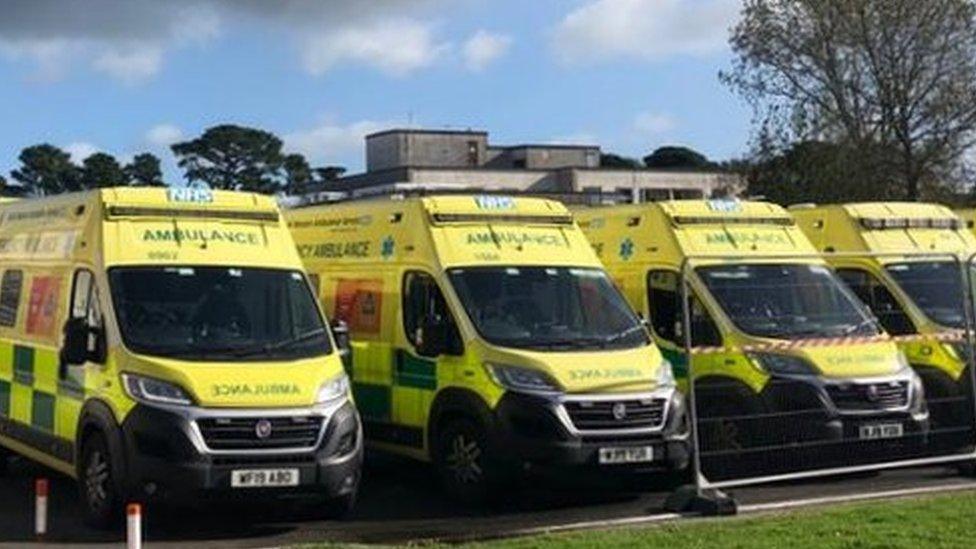
- Published19 October 2021
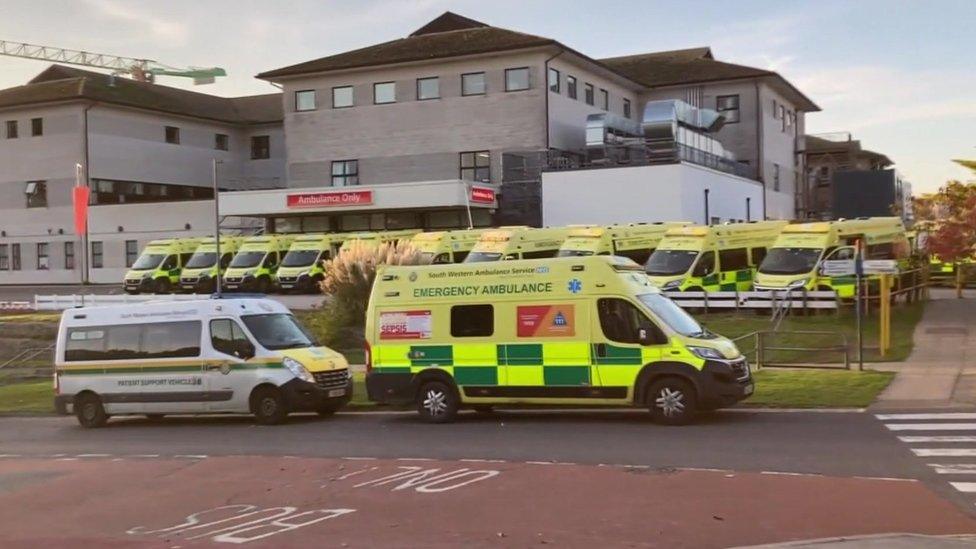
- Published20 July 2021
